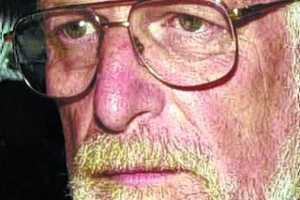
ALISON CAMPSIE
A group of prominent medical experts has demanded a full inquest into the death of government weapons inspector David Kelly.
They described the official cause of death, bleeding from a self-inflicted wound, as “extremely unlikely” in the light of evidence since made public.
The call came in a letter to a national newspaper signed by eight senior figures, including Michael Powers, a former coroner; Margaret Bloom, a former deputy coroner; and Julian Bion, a professor of intensive care medicine.
Coalition ministers are currently exploring how best to address concerns over the official version of Dr Kelly’s death.
The scientist was found dead in woods near his Oxfordshire home in 2003 after he was exposed as the source of a BBC story suggesting that a dossier on the presence of weapons of mass destruction in Iraq had been “sexed up” by the Government.
An inquest was suspended to make way for the Hutton Inquiry, which examined the full circumstances surrounding his death.
The inquest was never resumed, with the inquiry finding his death was self-inflicted. But in their letter, the experts claim this conclusion is unsafe.
They write: “We would like to express our concerns about the conclusion as to the cause of death in the light of the information now in the public domain.
“It is extremely unlikely, from a medical perspective, that the primary cause of death would or could have been haemorrhage from a severed ulnar artery in one wrist without any evidence of a blood-clotting deficiency.
“Insufficient blood would have been lost to threaten life.
“The inquiry by Lord Hutton was unsatisfactory with regard to the causation of death. A detailed investigation of all the medical circumstances is now required and we support the call for a proper inquest into the cause of Dr Kelly’s death.”
Other concerns have been raised about the inquiry’s finding that Dr Kelly cut his own wrist after consuming a number of high-strength pain-killing muscle relaxants.
Mai Pederson, a colleague who served with him in Iraq, says a hand and arm injury had left him “too weak” to cut his own wrist.
Retired detective Graham Coe, the officer who stood guard over Dr Kelly’s body after it was first discovered, said there was very little blood at the scene.
No fingerprints were found on the knife Dr Kelly is alleged to have used, it later emerged, and he was not wearing gloves when his body was discovered.
In January, it emerged Lord Hutton secretly classified all medical and scientific records relating to Dr Kelly for 70 years, including the post-mortem examination report and photo of his body.
Justice Secretary Kenneth Clark would have to overturn the order to allow a coroner’s inquest to take place.
There is ongoing legal action by a separate group of doctors to secure an inquest, while Attorney General Dominic Grieve can apply to the High Court for an inquest if he believes there is considerable doubt in the public’s mind that Dr Kelly killed himself.
, 14 Aug 2010
